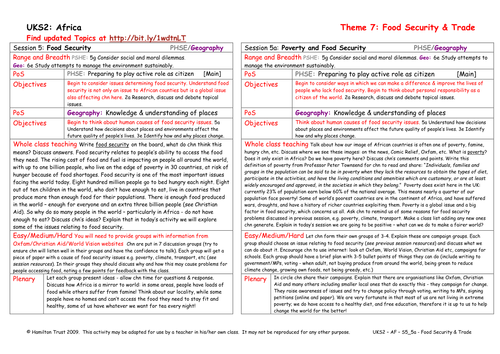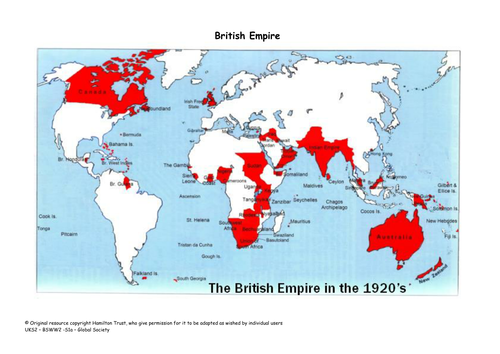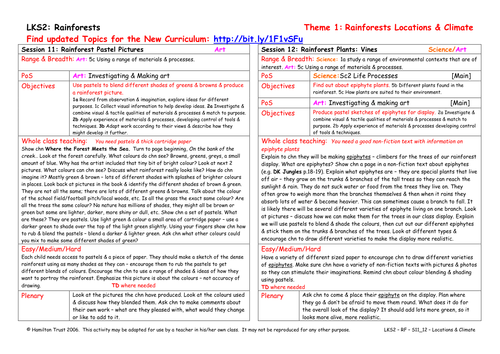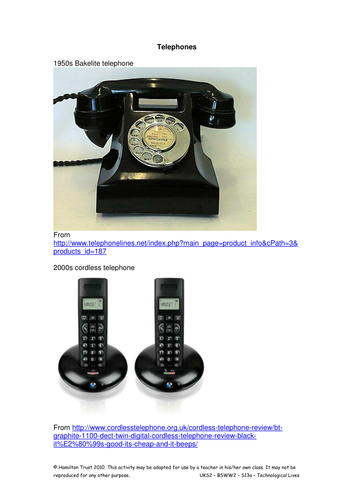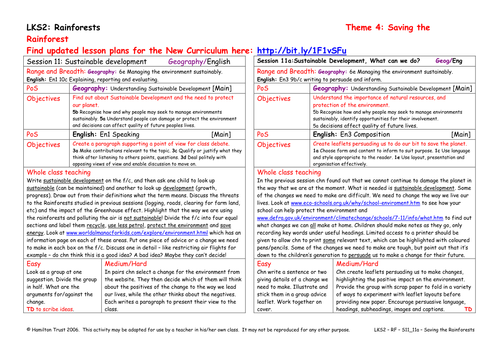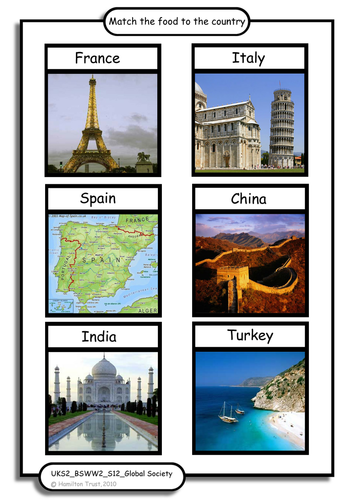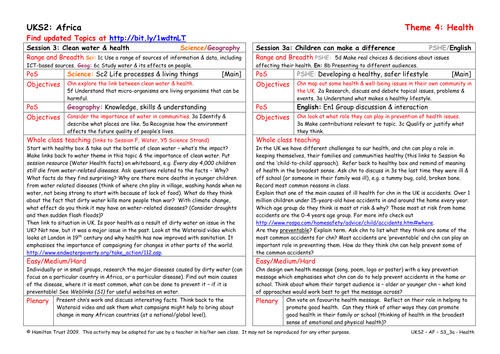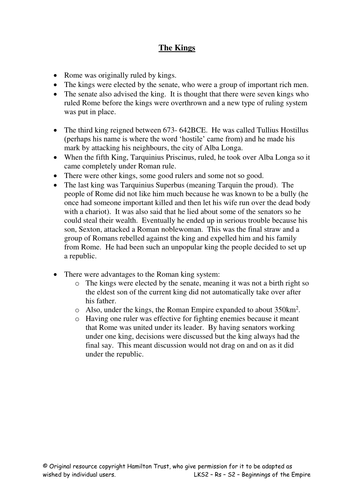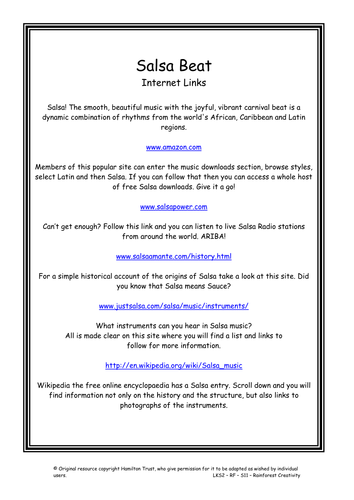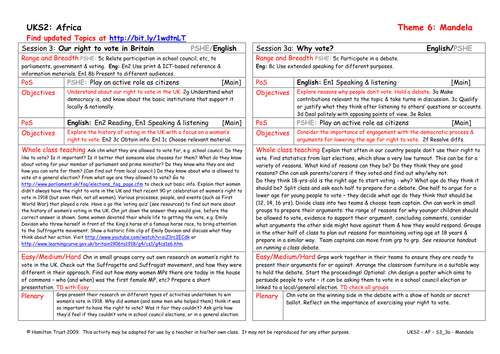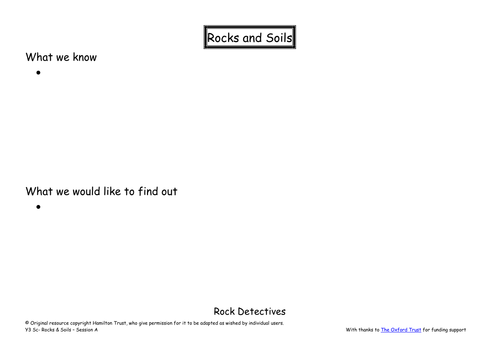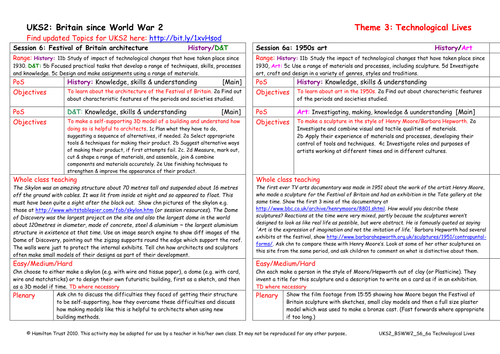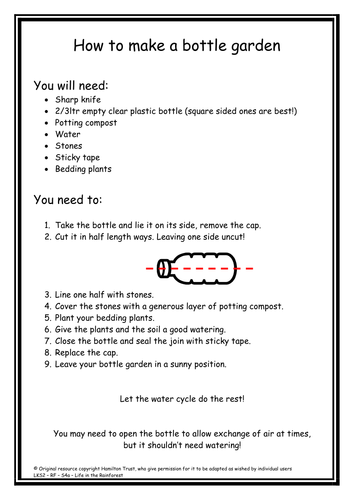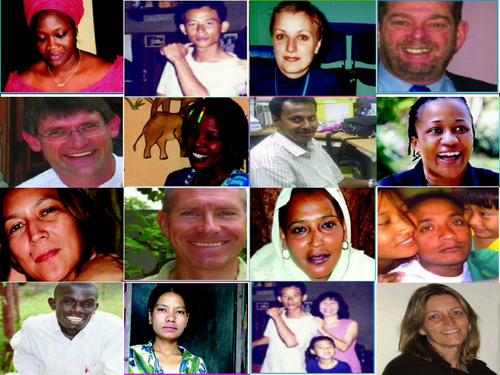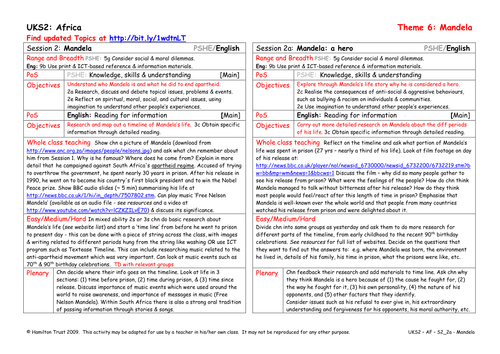
397Uploads
10045k+Views
11647k+Downloads
All resources

Food Security
Children begin to consider issues determining food security. This session helps them to understand that food security is not only an issue for African counties but is a global issue also affecting us here. Children work in groups to discuss different causes.

Who Are The British People?
Discuss the diff peoples who came to Britain in the past and made it their home - Celts, Romans, Saxons, Vikings and Normans and how other peoples have continued to come since WW2. Start a class timeline and individual timelines using ICT about this.

Rainforest Plants - Vines
Epiphytes are small plants that live not in the soil but happily up on the branches of trees in the layers of the rainforest. In this session children find out more and create pastel epiphytes for the Rainforest display.
Suitable for years 3 and 4.

Telephones
Children order pictures of old telephones. They decode, then write mobile ‘phone text messages.

Sustainable Development
The way we are damaging the planet we live on is not sustainable! Children find out about sustainable development and look at some of the changes that we need to make. Children think of both positives and negatives for these changes.

Family Food
Consider where the food that we eat comes from. Grown at home, locally or in another country? Discuss food miles. Who does the shopping, cooking, washing up? Where does the water come from? Cook a meal/dish and write the recipe to send to your link school. Suitable for years 5 and 6.

Merging Cultures
Celebrate the diversity of British people! The cultures of immigrants from many countries who have come to Britain since WW2 have been merged with the pre-war British culture to provide a great variety of foods, music, clothes and dance. Explore and enjoy!

Animals including Humans - Healthy Animals - Year 2
Hatch eggs and study the life cycle of chickens. Build understanding that exercise makes the heart work harder and that it is an essential part of a healthy lifestyle. Find out about healthy lunch box foods before designing and sharing your own snack.
Includes 6 session plans & resources
01 - Hatching eggs!
02 - Babies!
03- Stranded!
04 - Healthy hearts!
05 - Deep inside my lunch box!
06 - Pack a healthy picnic!
Hamilton’s science scheme provides children with a broad but comprehensive experience of primary science that systematically covers all of the National Curriculum for England objectives. Each year group is split into 6 blocks of 6 sessions, each of which can be completed within a half-term. We present them in a recommended teaching order, but you may adapt this to fit your requirements. Working scientifically, investigations and meaningful outcomes are fully incorporated in each block.

Clean Water and Health
Children research the impact of dirty water on health. They present research to the class and identify the biggest killer diseases. Opportunity here to link back to the water topic, and understanding of a preventable disease.
Suitable for years 5 and 6.

Kings, Republic, Emperors
Children locate the Roman empire on a timeline and discuss how historians and archaeologists are able to piece together the facts. They look at the 3 systems of government: monarchy, republic and emperors, and debate advantages/disadvantages of each.
Suitable for years 3 and 4.

Salsa Beat! Dance To The Music!
In this session the children get to the rhythm of Salsa! They find out about the history of the dance, before listening to some examples and getting to grips with the instruments used to create it.

Our right to vote in Britain
Examine voting in the UK, recent elections, and why we vote. Children use a quiz to explore the history of voting in the UK and focus on women’s right to vote, and then do further research. Watch film footage of Emily Davison.
Suitable for years 5 and 6.

Washing Machines and Spin Driers
Children look at labour saving household inventions, order picture of machines across the decades and then carry out an experiment to find out how spin driers work.

Rock detectives
Revisit vocabulary about properties of materials. Explore ‘what we know’ and ‘what we would like to know’. Go for a walk to identify how materials that come from rocks are used around the school.
Suitable for Y3 pupils.

1950s Art
Children look at 1950s sculptures by Barbara Hepworth and Henry Moore and make their own similar model from clay.

Magnetic Attraction and Repulsion
Following session 7, children look at which types of material are attracted by magnets and which are not. Using an experimental approach, they also investigate the two magnetic poles on a magnet and what happens when like is placed against like, etc.
Suitable for years 3 and 4.

Water Cycle in Miniature
On Earth we still have the same drops of water that touched the lips of the dinosaurs! In this session children use all that they have learnt in the previous session to create a self contained bottle garden.
Suitable for years 3 and 4.

HIV: Kishe’s Story
Return to MDG 6, and focus on HIV and AIDS. Children read a story of a young orphan, Kishe, and reflect on her life story and the wider impact of HIV across generations.
Suitable for years 5 and 6.

Mandela
Link apartheid to Mandela. Who he is, where he comes from, why he is so famous, right up to the present day. Use internet and books to find information about Mandela’s life and start to develop a time line as a useful tool to refer to throughout the theme.
Suitable for years 5 and 6.

